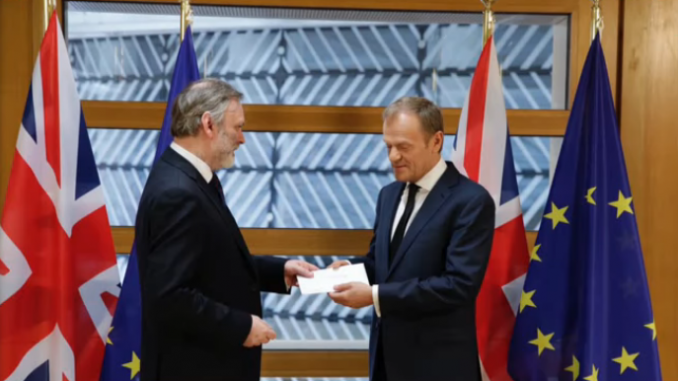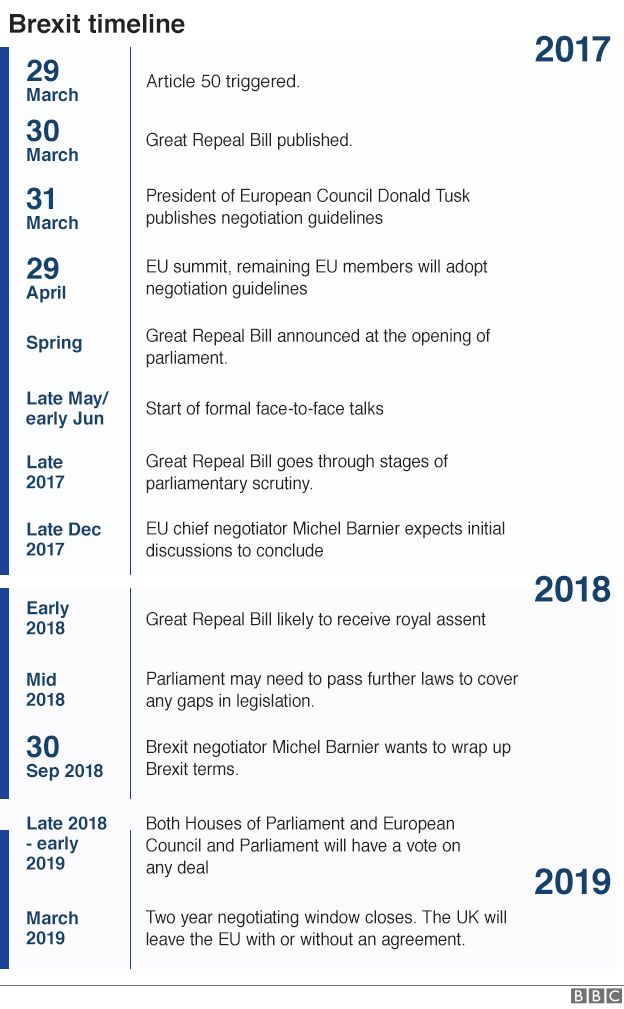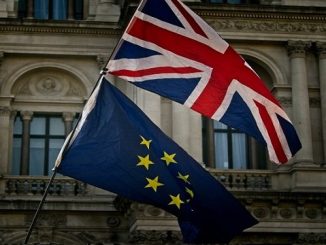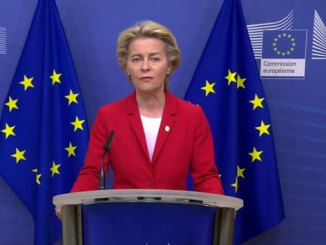
The UK is officially on its way out of the European Union after 44 years.
Prime Minister Theresa May has triggered Article 50 of the Lisbon Treaty starting a two year countdown to the UK’s exit.
Britain’s ambassador to the EU, Sir Tim Barrow, hand-delivered a six page letter from Mrs May to EU Council President Donald Tusk in Brussels to formally begin divorce proceedings.
It follows June’s referendum which resulted in a vote to leave the EU.
In a statement in the Commons, the prime minister is to tell MPs this marks “the moment for the country to come together”.
She will promise to “represent every person in the whole United Kingdom” during the negotiations – including EU nationals, whose status after Brexit has yet to be settled.
“It is my fierce determination to get the right deal for every single person in this country,” she will say.
“For, as we face the opportunities ahead of us on this momentous journey, our shared values, interests and ambitions can – and must – bring us together.”

Labour leader Jeremy Corbyn said his party respected the decision to leave the EU and would hold the government to account “every step of the way”.
He said: “Britain is going to change as a result. The question is how.”
Mr Corbyn warned it would be “a national failure of historic proportions” if Mrs May does not secure protection for workers’ rights.
The Liberal Democrats, who oppose Brexit, said Mrs May was “pulling the trigger that will set in motion a chain of events which will change this country forever, and doing so without a proper plan”.
Chancellor Philip Hammond, who like Mrs May and Mr Corbyn campaigned against Brexit in the referendum, said the triggering of Article 50 was “a pivotal moment for Britain”.
He told BBC Radio 4’s Today programme the country would continue to remain a full member of the EU for the next two years and would observe “the same rules and obligations”.
He also stressed that there will be no cut-off from today to the rights of EU nationals arriving in Britain.
The European Parliament had threatened to veto any agreement if the UK ended those rights from today.
Mr Hammond also played down the prospect of Britain leaving the EU without any deal, insisting “we will get a deal”.
And in what appeared a rebuff to the Foreign Secretary Boris Johnson he suggested the UK would have to compromise with other EU countries and could not expect to secure all its demands.
“We cannot have our cake and eat it,” he said.
He did not rule out partial or associate membership of the EU single market, while stressing that the UK could not remain “full members” of it.
Theresa May will be outlining the next steps during a special half hour BBC One interview on Wednesday with Andrew Neil at 19:00 BST on “Britain after Brexit”, to mark the triggering of Article 50.
The UK has said it wants an “early agreement” to guarantee the rights of EU citizens living in the UK and those of British nationals living abroad.
Other issues which are likely to be discussed are cross-border security arrangements, the European Arrest Warrant, moving EU agencies which have their headquarters in the UK and the UK’s contribution to pensions of EU civil servants – part of a wider “divorce bill” which some reports have suggested could run to £50bn.
On Thursday the government is expected to publish details of its “Great Repeal Bill”, which aims to convert EU law into domestic legislation and repeal the European Communities Act, which says EU law is supreme to the UK’s.






Be the first to comment